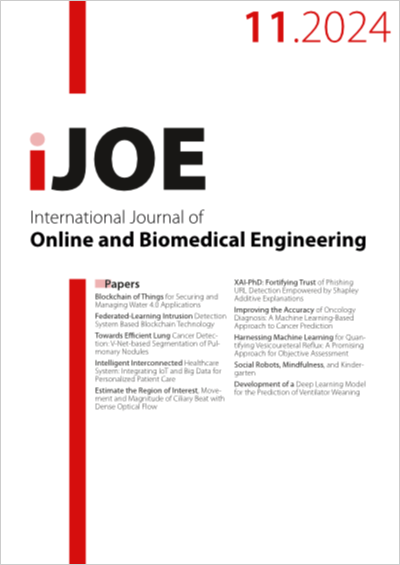Social Robots, Mindfulness, and Kindergarten
DOI:
https://doi.org/10.3991/ijoe.v20i11.49503Keywords:
social assistive robots, mindfulness, kindergartenAbstract
The following review examines the use of social robots in mindfulness practices, with a focus on their application in preschool settings. Additionally, it explores the key attributes of social robots that could enhance their effectiveness in achieving targeted outcomes. This study is the initial phase of a project that aims to investigate the advantages of technology and mindfulness in kindergarten. The selection of this age group is based on its significance in the comprehensive development of children, despite the lack of extensive study on mindfulness in this specific context. The objective of this paper is to present existing research on social robots and mindfulness, assess the potential benefits and challenges of integrating these two fields in kindergarten, and, most importantly, inspire future studies on the use of robots and mindfulness in early childhood education. A bibliographic review of articles was conducted. The findings of our study suggest that the use of robots and human-robot interactions can enhance self-development, well-being, and mindfulness. Robots have the capacity to capture attention and motivate young children, specifically. Both humanoid and non-humanoid robots seem suitable for facilitating mental well-being exercises. However, a well-designed social robot for children should incorporate both human-like and mechanical features. Our primary aim is to encourage further study on the integration of robots and mindfulness in preschool education, as there is still a vast unexplored territory in this rapidly advancing field.
Downloads
Published
How to Cite
Issue
Section
License
Copyright (c) 2024 Panagiota Anagnostopoulou, Athanasios Drigas

This work is licensed under a Creative Commons Attribution 4.0 International License.


